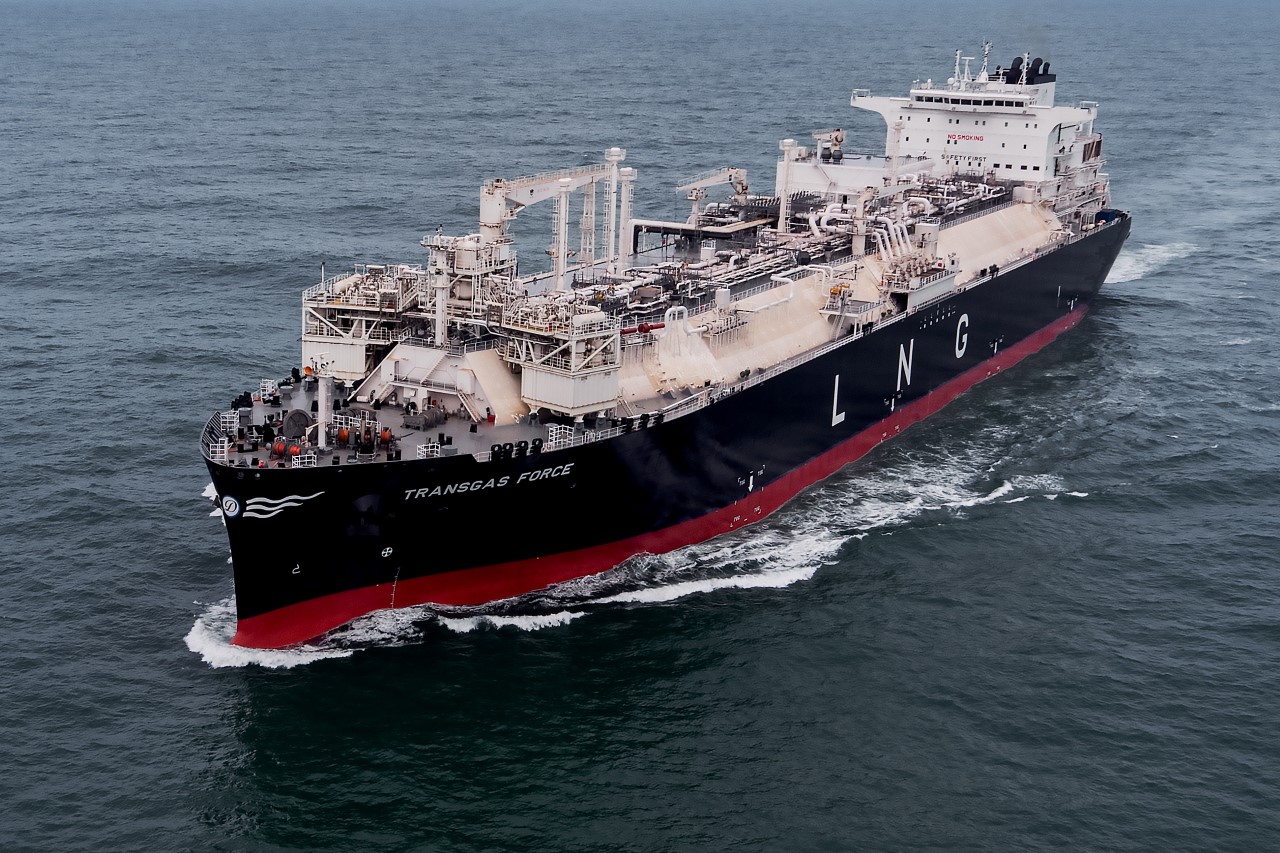Germany has chosen Stade and Lubmin as the next two locations to install the chartered floating storage and regasification units, as part of its plans to fast-track LNG imports and slash reliance on Russian gas.
Germany is moving quickly with its plans to build infrastructure and become a major LNG importer, and has introduced the LNG acceleration law and chartered four FSRUs.
These vessels include the two units RWE chartered from Hoegh LNG, and the Dynagas-owned 174,000-cbm Transgas Force and Transgas Power that will go on charter to Uniper.
Uniper has already started building Germany’s first FSRU-based LNG facility in Wilhelmshaven and expects to commission it this winter, while Dutch gas grid operator Gasunie recently said it expects the Brunsbuettel FSRU-based LNG import terminal to go online by the end of this year.
Such as the Uniper facility, the Brunsbuettel terminal will host one of the four chartered FSRUs as well. RWE will probably install one of the two FSRUs it chartered from Hoegh.
Two new locations
In addition to these units, Germany now picked Stade and Lubmin to place the remaining two units, according to a statement by the Ministry of Economics and Technology.
The statement said that the Stade location would be operational at the end of 2023 and the Lubmin location would be available at the end of 2023 at the earliest.
All of these FSRUs have at least 5 bcm per year capacity.
Also, the ministry said that a private consortium would install the fifth German FSRU in Lubmin by the end of this year as well.
Deutsche ReGas, which is developing an LNG import terminal at the German port of Lubmin, recently signed a term sheet with French energy giant TotalEnergies under which the latter would provide an FSRU for the project.
Besides these five units, German energy firm E.ON joined forces with Belgium-based Tree Energy Solutions (TES) and France’s Engie to deploy another FSRU in Wilhelmshaven.
Stade LNG plans
As per the Stade location, Germany’s Hanseatic Energy Hub is already developing an LNG import facility with a capacity of 13.3 billion cubic meters there.
The consortium consisting of Fluxys, Dow, Partners Group, and Buss Group, launched a binding open season for the facility last month.
In a response to the FSRU announcement, HEH said in a statement that the the FSRU is expected to be ready for the import of LNG in the port of its future LNG hub by the end of 2023.
The FSRU would connect to the grid via a two-kilometer long pipeline. Like the future LNG terminal on land, the floating unit can be operated with industrial waste heat from neighboring Dow during the transition period, “greatly” reducing CO2 emissions, HEH said.
“FSRUs are important for ensuring the security of gas supply in Germany in the short term. In Stade, we have the infrastructure and the experience with liquefied gases to enable smooth operation. We are happy to provide both,” Johann Killinger, managing director and co-shareholder of HEH, said.
“In parallel, we will be pushing full steam ahead with the expansion of our land-based zero-emission terminal. Because one thing is clear: Germany needs a future-flexible energy infrastructure to drive the transformation of our energy supply sustainably and reliably,” Kilinger said.

